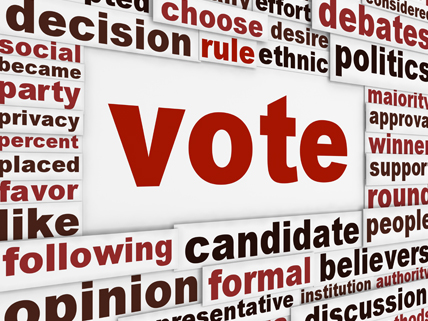If you watched TV news after the 2012 elections, you may have heard some politicians expressing shock that not only did President Obama win a second term, but many conservative candidates were defeated. It turns out that one reason for their dismay is rooted in a misperception about U.S. voters’ conservatism. A new study reveals that politicians, especially conservative politicians, overestimate how conservative their constituency—the electorate that they represent—is.
The study surveyed state legislative candidates and how they thought voters felt about hot-button issues, including same-sex marriage and a universal health-care system. What the study found is that voters supported gay marriage and universal health care by 10 percentage points more than politicians had thought they would. Politicians considered to be conservative were even further off; their estimates erred by as much as 20 percent. The impact of this misperception can be dramatic, say the study’s authors: “This difference is so large that nearly half of conservative politicians appear to believe that they represent a district that is more conservative on these issues than is the most conservative district in the entire country.”
These misperceptions can lead conservative politicians to lean ever further to the right to increase their appeal. On the other side, liberal politicians may assume that the chance of passing liberal or even centrist legislation is very low, so they don’t push those issues.
The reasons for the gap between politicians’ perceptions and their constituents’ opinions are still up for debate. What is certain is that the gap exists—although in an age of inexpensive travel, instant communication, and constant electronic connectedness, one may wonder why that is.
Image credit: ã Andrii Kondiuk/Shutterstock
Related Links
-
What Politicians Believe about Their Constituents: Asymmetric Misperceptions and Prospects for Constituency Control
Read the whole study on misunderstood voters’ views here.
(Source: University of California, Berkeley, March 3, 2013) -
Politicians Massively Overestimate Conservatism of Constituents: Study
This article summarizes the study and includes a video of several commentators.
(Source: Huffington Post, March 4, 2013) -
One Study Explains Why It’s Tough to Pass Liberal Laws
The link includes graphs on support for same-sex marriage and universal health care.
(Source: Washington Post, March 4, 2013) -
How to Explain Romney’s Loss to Shocked Conservatives
A conservative writer advises readers of what was about to happen on November 6.
(Source: The American Conservative, November 6, 2012) -
Conservative Media Lie to Conservatives Because That’s What Conservatives Want
A liberal writer focuses on the role of conservative media in politicians’ misperceptions.
(Source: Mother Jones, November 8, 2012)




